- Home
- Lois Lowry
The Birthday Ball Page 5
The Birthday Ball Read online
Page 5
Page 5
"Miss," the chambermaid asked timidly, "may I go, please? Its close to suppertime and I want to be there to watch the pulley boy. "
"The pulley boy. I suppose hes on your list of suitors?"
The Birthday Ball
"Oh, no, miss!"
"Only joking. Go on. Ill see you in the morning. Be here early. I was late for school today. I want to arrive on time tomorrow. "
"Miss!" The chambermaid looked surprised. "Youre going back?"
The princess propped herself up against the pillows. "Of course I am. My first day as a peasant was the loveliest day Ive ever had. I was not bored for a minute. "
"The schoolmasters stern, though," the chambermaid pointed out.
"A little. But handsome. "
The chambermaid wrinkled her face. "Handsome? No, miss. He aint, not at all. He has a very fierce face. "
"Perhaps. But it appealed to me. Do you know his name, Tess? I asked him but he said we should all just call him Schoolmaster. "
Tess nodded. "Its a foreign name. Herr Gutmann. Hes from far away. They say he come from a noble family. "
"Thats odd," said the princess. "He said he was a peasant. "
"Not him, miss. Maybe he likes to pretend it. "
"He did wear shoes, now that I think about it. "
"Please, miss? Its time for me to go below-stairs. "
The princess laughed. "To see your pulley boy. All right, Tess. Run along. "
Tess closed the door to the bedchamber behind her. Through it, she heard the princess mutter, "Suitors, schmooters. "
7. The Duke
A warthog has large upcurled tusks, and Duke Desmond, being human, had none. He did, however, have huge, crooked, brown-spotted teeth, and a tuft of coarse copper-colored hair; the two features combined to make him resemble such an animal, so the princess was not inaccurate in her description.
That his disposition was terrible was not surprising. In his defense, it must be said that any human who resembles a warthog is bound to be irritable and testy. His own parents had found it distasteful to look at Desmond when he was young, and when he was a child no other children had ever invited him to play. Such slights do affect ones personality.
The Birthday Ball
But Duke Desmond did have one attribute. He was immensely wealthy.
Both of his parents had by now passed away, and Duke Desmond ruled the opulent principality of Dyspepsia and owned all of its wealth: oil wells, gold mines, and huge vineyards. The income from all of these came to Desmond. He spent it and spent it on clothes and playthings and trinkets and baubles, but it continued to come. And with the money and the title came power. He was a very powerful man.
Such was his power that he had found a way to forget his own appearance. He had abolished not only all mirrors and looking glasses from Dyspepsia, but also any shiny object that might throw back a reflection. When he traveled, he did so accompanied by bodyguards and courtiers, some of whom went ahead to be certain that all such reflectors were removed from his presence.
So Duke Desmond had found a way to forget what he looked like. He had begun to think of his appearance as pleasing, and the servants he hired had been trained to address him as they might address a handsome man.
"How fine you look this morning, sir!" his manservant would proclaim upon drawing open the curtains of the sleeping chamber each day. Duke Desmond would yawn and stretch and then appear to smile. He never really smiled, but his huge protruding teeth made it impossible for him to close his lips.
Years before, a previous manservant had foolishly suggested to the duke that he brush his teeth, but that unfortunate servant had been confined in the dungeon ever since. By now the teeth were mottled with decay and encrusted with plaque. Perpetual toothache was a further reason for the dukes bad disposition.
No one dared suggest, either, that he comb his hair. Or cut it. The coarse red-brown tuft at the top of his head was long and snarled. When he tossed his head, as he frequently did in fits of anger, the hair moved like a thick whip from side to side, and those in its path were in danger from it. One small serving maid had been knocked to the floor by the hair and had her brain permanently addled. The dukes barrister had made a gift to the maids family of a large sum of money to make up for it, and other servants had learned to stand clear in the future.
The most heinous of individuals (and Duke Desmond was certainly one of those) all seem to have a deeply hidden sorrow. For the duke, it was that he had no child.
Without a child, he had no heir. When he died, Duke Desmond knew, his wealth—his wells and mines and vineyards—would all go to the populace. Peasants would own it all, control it all, and the thought made him seethe with angry despair.
But that was not the whole of it. He wanted a child for another deeply human reason. He wanted someone to love him.
And so he needed a wife.
He had chosen Princess Patricia Priscilla.
***
It can be said, and has been said, often, that money cannot buy happiness. But Duke Desmond thought that it could, and that he had figured out the way to bring it about.
His spies had been sent to the domain where the princess lived with her parents in the castle. They went disguised as peddlers, carrying displays of hair products and encyclopedias. The queen, who began each day with a visit to her private beauty salon, welcomed the spy who proclaimed that he carried a line of amazing shampoos and curling lotions newly invented by cloistered nuns in a distant and holy place.
"Eh?" the queen said to the imposter peddler. "Blistered buns, you say?"
"No, maam, cloistered nuns!"
"Holstered guns!" she said. "Amazing. Ill take three hundred of each. "
The king summoned the other spy to the counting house. He examined the encyclopedia and ordered several to be delivered to the royal library. The imposter peddler wrote down the order meticulously, but in truth his interest was not on the order but on what about the encyclopedia had most interested the king.
It was Volume B.
It was, specifically, butterflies.
Of course the spy had noticed the elaborate shelves that housed the kings butterfly collection and where the mounted winged creatures were on display, with special lighting. They were arranged two ways: one by color, so that the lengthy shelf began with pale yellow and made its way through each gradation and hue—oranges, reds, blues, greens—so that the wall seemed a rainbow. But the opposite wall held the same collection, duplicates, arranged by scientific names: In the section marked nympkingidae, the spy saw the amazing
The Birthday Ball
multicolored Prepona praeneste praenestina; nearby, under ORNITHOPTERA, was the semitranslucent Papuana; and in the PAPILIONIDAE section he marveled at the huge deep orange Papiio antimachus.
Yet on each wall, the spy noticed, there was an empty spot. A label was attached—he could read Charaxes acraeoides. But there was no such mounted butterfly.
Stealthily, in his little notebook, he wrote the name of the missing butterfly.
"I notice that one of your specimens is out for cleaning, sir," he commented.
The king looked up from Volume B of the encyclopedia. He saw that the spy was referring to the empty places on the shelves. His face fell.
"Missing. Rare," the king explained. "Hard to acquire. Working on it. "
And so the spy went back to Duke Desmonds principality with the knowledge of how money could, indeed, buy happiness, at least when happiness took the form of a rare butterfly. His fellow spy was glum, having acquired nothing but an order for three hundred bottles of shampoo and three hundred bottles of curling lotion. "Funnels," he muttered. "Ill have to do it with funnels. "
"Do what?" They were riding their horses side by side behind the cart that carried their samples.
"Fill six hundred bottles with soapy water. "
"You could just forget it. Often people order things that never arrive. "
The hair product spy considered that. Then he sighed. "Have you ever visited the dungeon?"
"Oh. Yes. I see what you mean. "
"Filled with people who did not fulfill promises. "
"Yes. "
"Dark and cold and lonely. "
"Yes. "
"Ill use funnels. And you?"
"I got lucky. Ill tell the duke he has to send someone to find and buy that butterfly"—he took out his notepad and read the name of the missing specimen—"whatever the cost. "
Back in his bedchamber, Duke Desmond was examining his clothing and deciding what to wear to the Birthday Ball. Green was good on him, he thought. Seductive. Maybe Spandex, which would outline his rounded stomach in an attractive way. Tights, probably. And pointed shoes. Yes, definitely: pointed shoes.
8. The Schoolhouse
Her second day of school was less strange than the first, because the princess was part of the class now—she was the pupil Pat—and the other students accepted her as one of them.
They were all ages. She was probably the oldest, though two of the boys were as tall and had deepening voices. Most of the girls were middle-size, the age at which girls played with dolls and jump ropes (she had watched them at recess, and had held the frayed rope at one end when they asked her to help turn it), and one girl, Liz, the tiniest in the school, was no more than five, with large blue eyes, an infectious giggle, and a runny nose.
Lizs desk was next to Pats. The little girl held her tongue between her lips in concentration, and she was practicing making letters on her paper. Her bare feet dangled, her legs too short to reach the floor, and she frequently pulled her skirt up to scratch a mosquito bite on her leg.
"You should put some lotion on that bite," Pat whispered to her.
The child wrinkled her nose and thought about it. "Dunno what lotion is," she said. "Never heared of such a thing. "
In the castle an entire room was devoted to remedies, everything from headache potions to snakebite salves. A gray-haired apothecary was always there to dispense what one might need, and he could also apply leeches and pull teeth if necessary.
But of course, the princess realized, a poor peasant had no room of remedies, no apothecary, no lotions.
The Birthday Ball
"Oh, dear," she replied to the little girl. "I happen to have some, though I am a very humble and needy peasant myself. Tell your ma Ill bring something for you tomorrow, and you wont have to scratch so frequently. "
Liz looked up from her misshapen As and Bs. "Got no ma," she said matter-of-factly.
"Oh, my! Pity! Well, your pa, then. Tell him. "
"Got no pa neither. "
"But—"
"I be a norphan," Liz explained.
An orphan! The princess knew of such people—she had heard stories about them. They frequently appeared in fairy tales. But here was one in person!
"But where do you live? Who takes care of you?" The princess couldnt imagine being so small and having no one.
"Oh," the little girl explained matter-of-factly, "I stay wif whoever wants me, cause they fink mebbe I can help out. Then, when they dont want me no more, I go live wif sumbody else. "
"You must be very forsaken and pathetic," the princess said sympathetically. "Im actually quite interested in orphans, and—"

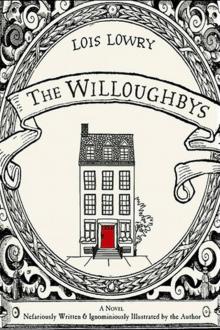 The Willoughbys
The Willoughbys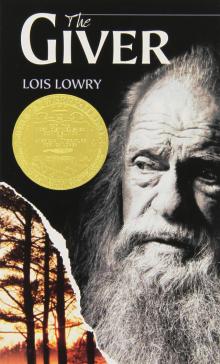 The Giver
The Giver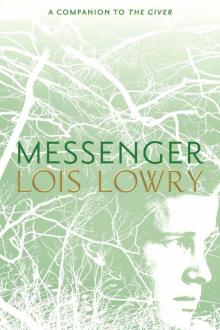 Messenger
Messenger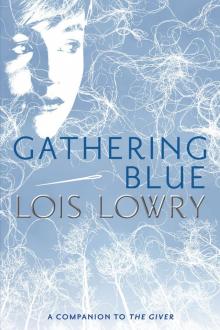 Gathering Blue
Gathering Blue Gooney Bird and All Her Charms
Gooney Bird and All Her Charms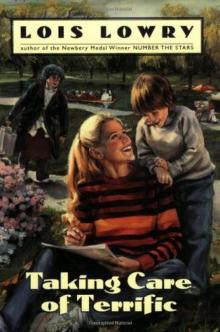 Taking Care of Terrific
Taking Care of Terrific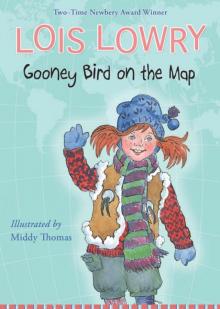 Gooney Bird on the Map
Gooney Bird on the Map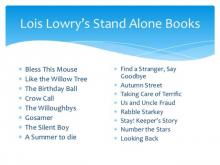 The Birthday Ball
The Birthday Ball Anastasia's Chosen Career
Anastasia's Chosen Career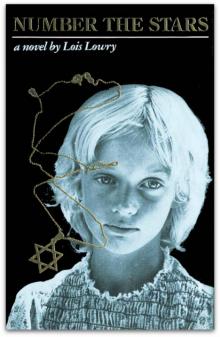 Number the Stars
Number the Stars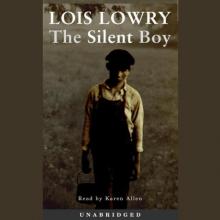 The Silent Boy
The Silent Boy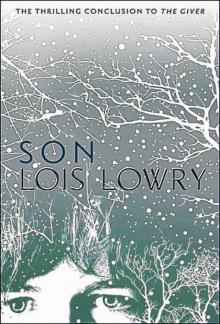 Son
Son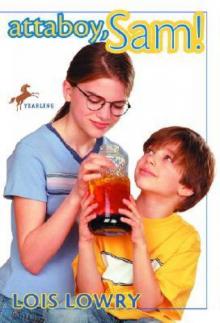 Attaboy, Sam!
Attaboy, Sam!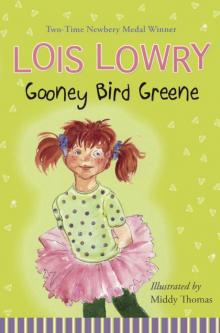 Gooney Bird Greene
Gooney Bird Greene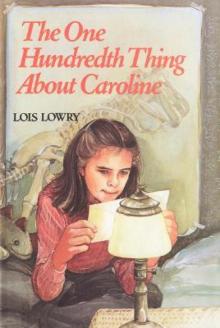 The One Hundredth Thing About Caroline
The One Hundredth Thing About Caroline Anastasia Has the Answers
Anastasia Has the Answers Your Move, J. P.!
Your Move, J. P.!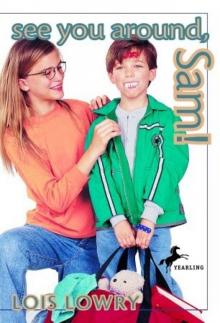 See You Around, Sam!
See You Around, Sam! All About Sam
All About Sam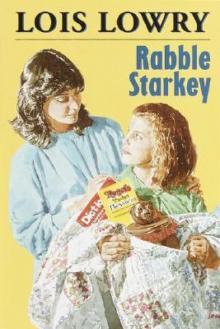 Rabble Starkey
Rabble Starkey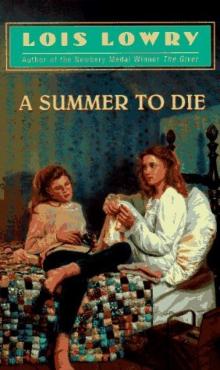 A Summer to Die
A Summer to Die Anastasia at This Address
Anastasia at This Address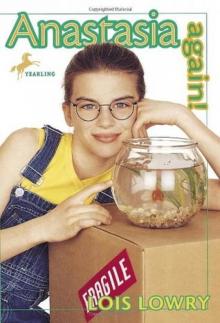 Anastasia Again!
Anastasia Again!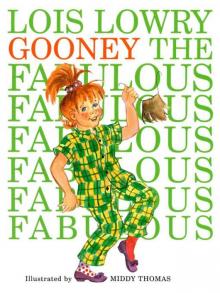 Gooney the Fabulous
Gooney the Fabulous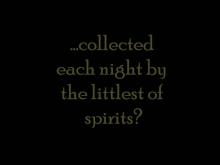 Gossamer
Gossamer Anastasia, Absolutely
Anastasia, Absolutely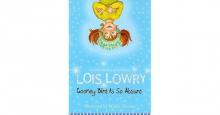 Gooney Bird Is So Absurd
Gooney Bird Is So Absurd Anastasia at Your Service
Anastasia at Your Service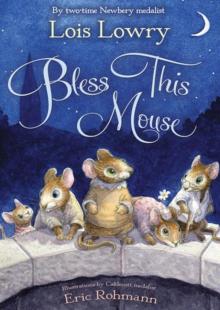 Bless this Mouse
Bless this Mouse Find a Stranger, Say Goodbye
Find a Stranger, Say Goodbye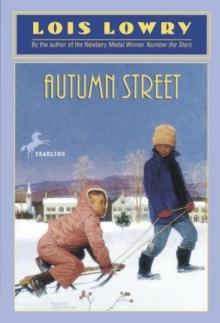 Autumn Street
Autumn Street Stay Keepers Story
Stay Keepers Story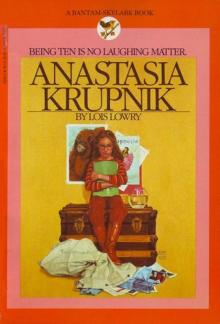 Anastasia Krupnik
Anastasia Krupnik Zooman Sam
Zooman Sam On the Horizon
On the Horizon Anastasia, Ask Your Analyst
Anastasia, Ask Your Analyst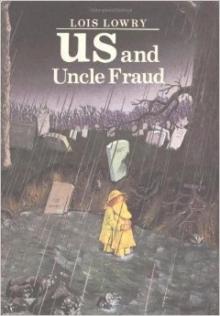 Us and Uncle Fraud
Us and Uncle Fraud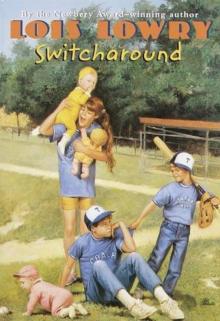 Switcharound
Switcharound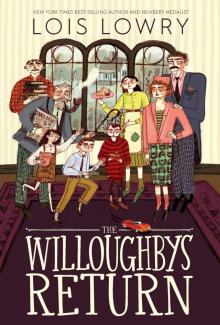 The Willoughbys Return
The Willoughbys Return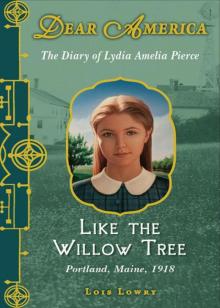 Dear America: Like the Willow Tree
Dear America: Like the Willow Tree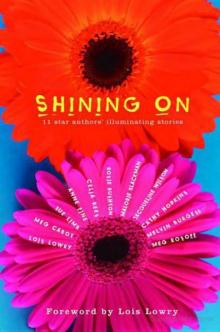 Shining On
Shining On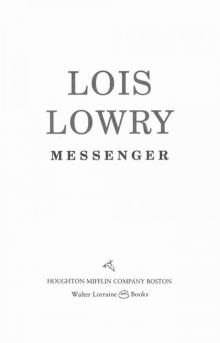 Messenger (The Giver Trilogy)
Messenger (The Giver Trilogy)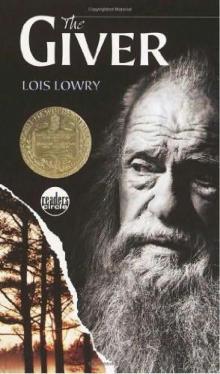 Giver Trilogy 01 - The Giver
Giver Trilogy 01 - The Giver